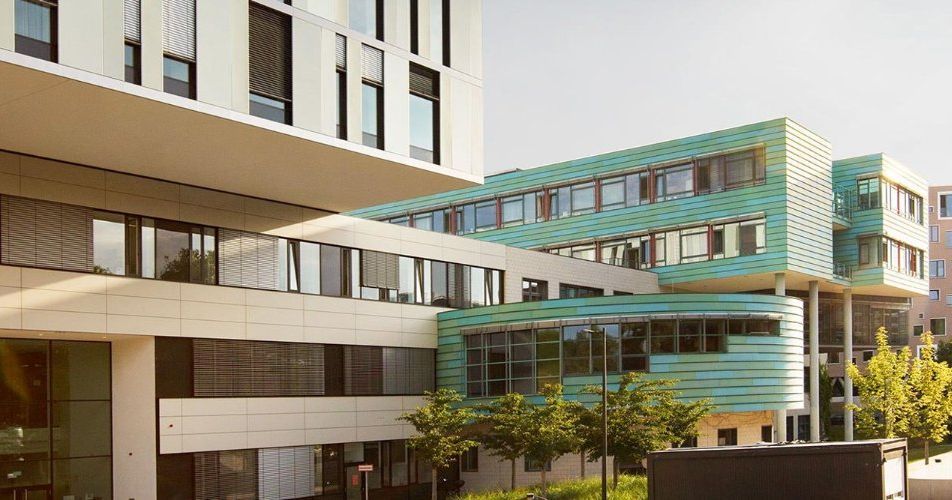New Hope for Hereditary Retinal Diseases with the new "RD TREAT" program
Thanks to multi-million funding, three innovative therapeutic approaches from Tübingen Centre for Ophthalmology can be further developed.
Download >>> here the press release in German.
The Centre for Ophthalmology in Tübingen is celebrating a historic milestone in its mission to slow down or even cure hereditary retinal diseases. This achievement has been made possible through a scientific cooperation agreement between the University Hospital Tübingen, the Faculty of Medicine, and the Foundation for Medical Innovations (SfM). Together with SfM, Tübingen’s ophthalmology researchers have secured a substantial double-digit million-euro funding to further develop three novel compounds, which have been experimentally tested in Tübingen, for use in affected patients. This marks the beginning of a new chapter in the treatment of these diseases, which often lead to blindness.
For the Tübingen Institute for Ophthalmological Research and the University Eye Clinic, this development strengthens their internationally significant role in treating retinal diseases, an area where the Tübingen site already holds a leading global position.
“In the 1990s, scientists systematically began identifying mutations in genes associated with specific eye diseases,” says Prof. Marius Ueffing, Director of the Institute for Ophthalmological Research and spokesperson for the new RD TREAT program (Retinal Dystrophies Treatment). “At that time, treatment for affected patients was a distant dream. Today, I am witnessing how this dream is becoming a reality—not only for us researchers but, most importantly, for those who now have hope of preserving their vision. That gives us confidence.”
Currently, hereditary retinal diseases remain incurable, with only a few exceptions. However, while there have been setbacks in global clinical studies, initial successes have also emerged. Significant advances in research—substantially contributed to by Tübingen’s ophthalmology centre over the past three decades—have led to a deeper understanding of the complex biochemical, cellular, and neuronal mechanisms of visual perception. These new insights have helped researchers better understand the molecular basis of these diseases, which involve mutations in over 300 genes, and to develop drugs specifically targeting retinal degeneration.
Hope for Preserving Vision
“The Tübingen Eye Clinic is proud to make a decisive contribution to developing new therapies for hereditary retinal diseases through the RD TREAT program,” says Prof. Karl Ulrich Bartz-Schmidt, Director of the University Eye Clinic. As a clinical retinal specialist who pioneered innovative therapies such as subretinal chip implantation and gene therapy for color blindness in Tübingen, he understands the importance of exploring new treatment paths and translating research findings into clinical applications.
“With RD TREAT, we can give hope to patients with previously untreatable eye diseases that their vision can be preserved,” he states.
To ensure a seamless transition from laboratory research to patient treatment, the Tübingen ophthalmology centre has formed an application-oriented team in collaboration with SfM. This team includes scientists, physicians, and the central “Eye and Ear” study unit, working closely on-site with pharmaceutical developers, project managers, and regulatory specialists.
“In a tightly structured five-year plan, the diverse project tasks are jointly coordinated by the Foundation (SfM) and the Centre for Ophthalmology. A carefully managed project framework with short decision-making pathways ensures the timely achievement of set goals, identifies potential development risks early on, and addresses them effectively,” explains Prof. Eberhart Zrenner, Chairman of the SfM Board.
The RD TREAT Program
The goal of the RD TREAT program is to develop effective treatments for previously incurable hereditary retinal dystrophies. The core focus is preventing vision loss caused by disruptions in the so-called transduction cycle of the light receptors in the retina. The program comprises three complementary projects:
- Gene replacement therapy for treating specific forms of retinitis pigmentosa.
- Two mutation-independent pharmacological neuroprotective strategies to halt disease progression.
Retinitis pigmentosa is caused by inherited genetic mutations that can impair the function of retinal photoreceptors, leading to their gradual degeneration. As a genetically inherited disease, it often runs in families.
A Breakthrough Only Possible at the Tübingen Centre for Ophthalmology
The Tübingen Centre for Ophthalmology—where a university eye clinic with more than 400 employees and a research institute with over 160 staff members form a highly active unit—has evolved into an integrated research and treatment center for ophthalmology since the construction of its new facilities in 2011. The RD TREAT program demonstrates how the close integration of scientific innovation and clinical care creates exceptional opportunities for new treatment approaches.
Prof. Thomas Gasser, Dean of Research at the Faculty of Medicine at the University of Tübingen, states:
“The Faculty of Medicine at the University of Tübingen is closely following the RD TREAT program with great anticipation. We are confident that the team led by Marius Ueffing will successfully bring effective therapies for patients with retinal diseases into clinical application.”
A Pioneering Model for Personalized Diagnosis and Therapy
The development of tailored molecular therapies for hereditary retinal diseases within RD TREAT could serve as a model for new treatment modalities in other medical fields. The program is embedded within the Gene and RNA Therapy Center of the Tübingen Faculty of Medicine. This integration allows for the transfer of expertise beyond ophthalmology, contributing to the advancement of molecular therapies in other disease areas.
Expert Contact:
Prof. Dr. Marius Ueffing
Director of the Research Institute of Ophthalmology
Spokesperson of RD TREAT
Phone: +49 (0)7071 29-84020
Fax: +49 (0)7071 29-4560
E-mail: marius.ueffing@uni-tuebingen.de





